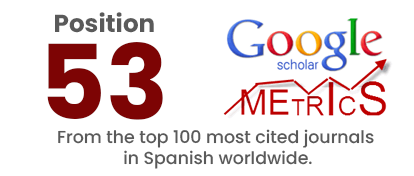Social management and quality of life: review of theoretical currents
DOI:
https://doi.org/10.36097/rsan.v1iEspecial_1.2901Keywords:
quality of life, welfare, social Sciences, society, social managementAbstract
The objective of this research is to analyze the conceptual foundations and theoretical currents that frame the relationship between the social variable management and quality of life with the purpose of framing their relationship and conceptualization. The type of research used is bibliographic - descriptive, since a general search was carried out in different databases such as Redalyc; Dialnet; Academic google; Jstor; SciELO; Scopus; Dimensions and La Reference., using search criteria according to each variable, and subsequently executing a coding through the use of Atlas Ti., as an information synthesis tool. Articles published in different languages were consulted, and the pertinent information was synthesized from them through the diagramming of codes and networks. As a conclusion of the research process, social management is considered as a fairly broad field of various theoretical criteria according to the area of applicability, while quality of life refers to the level of satisfaction that individuals have according to a group of indicators. personal and work-related events that mark their daily lives.
Downloads
References
Beaumont, M. (2016). Gestión Social: Estrategia y creación de valor. Levy del Águila. https://repositorio.pucp.edu.pe/index/bitstream/handle/123456789/54214/Gesti%C3%B3n%20Social%20-%20M.%20Beaumont.pdf
Chalmers, A. F. (1994). La fabricación de la ciencia (Trad. B, Sidou). UNESP. https://www.memoria.fahce.unlp.edu.ar/art_revistas/pr.5338/pr.5338.pdf
Cummins, R. A. (2000). Calidad de vida objetiva y subjetiva: un modelo interactivo. Investigación de Indicadores Sociales, 52, 55-72. https://www.jstor.org/stable/27522495
Demo, P. (2007). Metodologia científica nas ciências sociais. Atlas https://ufrb.edu.br/educacaodocampocfp/images/DEMO_Pedro._Metodologia_cient%C3%ADfica_em_Si%C3%AAncias_Sociais.pdf
Dowbor, L. (2003). Brasil: tendencias de la gestión social. Nueva sociedad, (187), 114-127. https://dowbor.org/wp-content/uploads/2003/10/03socialnueva.pdf
Edgerton, R. B. (1990). Calidad de vida desde una perspectiva de investigación longitudinal. En R. L. Schalock (Ed.), Calidad de vida: perspectivas y problemas (págs. 149-160). Asociación Estadounidense sobre Retraso Mental. https://www.researchgate.net/publication/283211086_Calidad_de_Vida
Feyerabend, P. (2007). Tratado contra el método (Trad. C. A. Morari). Tecnos. https://monoskop.org/images/3/3f/Feyerabend_Paul_Tratado_contra_el_metodo.pdf
Filho, G. (2008). Definición de gestión social. En J. Silva Jr., R. T. Mâsih, B. C. Cançado, & C. Schommer (Eds.), Gestión social. Prácticas en debate, teorías en construcción (pp. 26-37). Liegs/UFC. https://gestaosocial.paginas.ufsc.br/files/2011/07/Livro-1-Cole%C3%A7%C3%A3oEnapegsV1_Gest%C3%A3oSocialPraticasDebatesTeoriasConstru%C3%A7%C3%A3o.pdf
Kuhn, T. (1978). La estructura de las revoluciones científicas. Perspectiva. https://materiainvestigacion.wordpress.com/wp-content/uploads/2016/05/kuhn1971.pdf
Lakatos, I. (1999). Falsificación y metodología de programas de investigación científica. Ediciones 70. https://epistemologiaufro.wordpress.com/wp-content/uploads/2010/10/lakatos.pdf
Popper, K. (2007). La lógica de la investigación científica. Cultrix. https://raularagon.com.ar/biblioteca/libros/Popper%20Karl%20-%20La%20Logica%20de%20la%20Investigacion%20Cientifica.pdf
Programa de las Naciones Unidas para el Desarrollo (PNUD). (2022). Informe de desarrollo humano. https://hdr.undp.org/informe-sobre-desarrollo-humano-2021-22
Ramírez Coronel, A. Malo Larrea., A. Martínez Suarez, P. Montánchez Torres, M. Torrachi Carrasco, E. y González, F. (2020). Origen, evolución e investigaciones sobre la Calidad de Vida: Revisión Sistemática. Sociedad Veeolaa de Farmacología Clíica y Terapéutica, 39(8), 954-959. https://www.redalyc.org/journal/559/55969796006/html/
Ramírez, C. (2016). Tendencias investigativas que delimitan los campos de actuación del trabajo social en la gestión social. Civilizar Ciencias Sociales y Humanas, 30(16). http://www.scielo.org.co/scielo.php?Script=sci_arttext&pid=S1657-89532016000100017
Ruidiaz-Gómez, K. S., & Cacante-Caballero, J. V. (2021). Desenvolvimento histórico do conceito de Qualidade de Vida: uma revisão da literatura. Revista Ciencia y cuidado, 18(3), 86-99. https://revistas.ufps.edu.co/index.php/cienciaycuidado/article/view/2539
Salas Viscarrá, D. (2022). Gestión social y desarrollo sostenible en América Latina y el Caribe (2011-2021). Revista multidisciplinaria Ciencia Latina, 6(1), 1-14. https://ciencialatina.org/index.php/cienciala/article/download/1663/2340/
Santos, B. (2003). Introducción a la ciencia posmoderna. Grial. https://www.academia.edu/40134356/Epistemes_inter_intraculturales_desde_el_Sur_Global_homenaje_a_Boaventura_de_Sousa_Santos
Urzúa Alfonso, M. (2012). Calidad de vida: Una revisión teórica del concepto. Sociedad Chilena de Psicología, 30(1), 61-70. https://www.scielo.cl/scielo.php?script=sci_arttext&pid=S0718-48082012000100006
Verdugo, M., Schalock, R., Keith, K., y Stancliffe, 2005). Calidad de vida y su medición: principios y directrices importantes. Revista de investigación sobre discapacidad intelectual, 49, 707-717. https://pubmed.ncbi.nlm.nih.gov/16162115/
WHOQOL Group. (1995). The World Health Organization quality of life assessment (WHOQOL): position paper from the World Health Organization. Social science & medicine, 41(10), 1403-1409. https://doi.org/10.1016/0277-9536(95)00112
Downloads
Published
How to Cite
Issue
Section
License
Copyright (c) 2024 Yessenia Johana Márquez Bravo

This work is licensed under a Creative Commons Attribution-NonCommercial-NoDerivatives 4.0 International License.


















